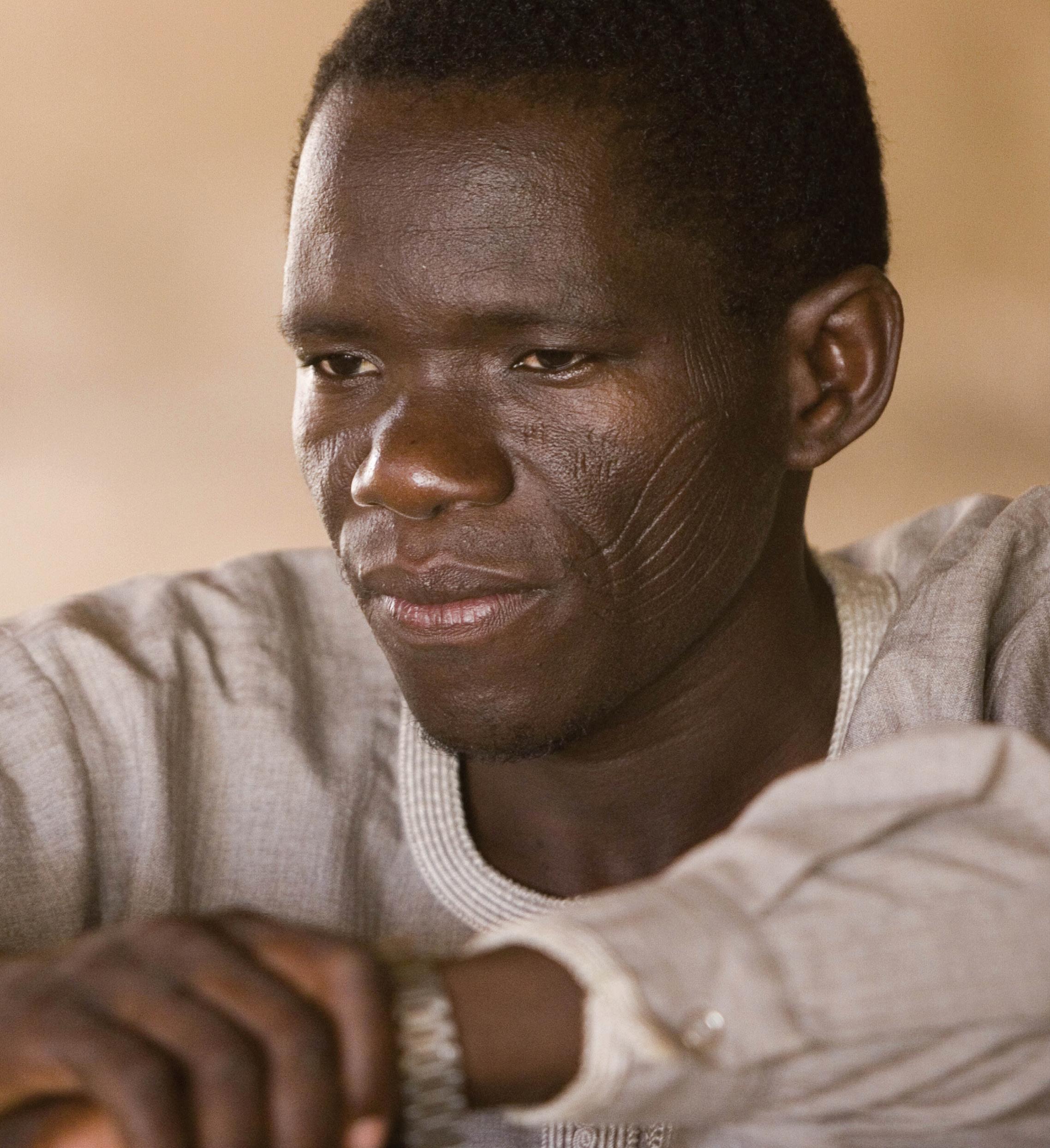
























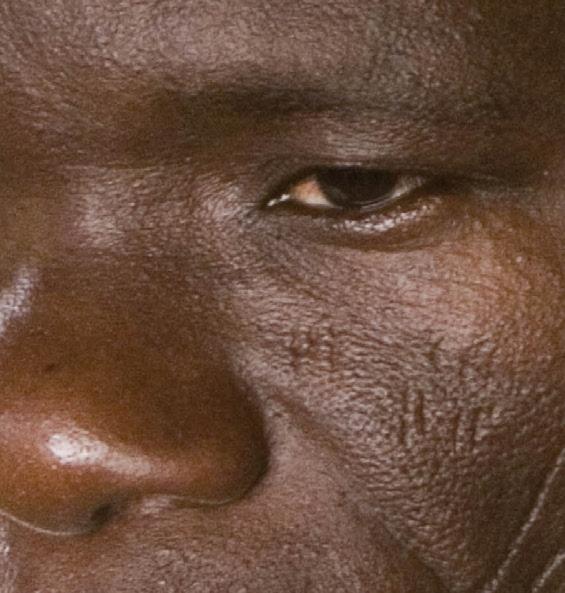












































































































































































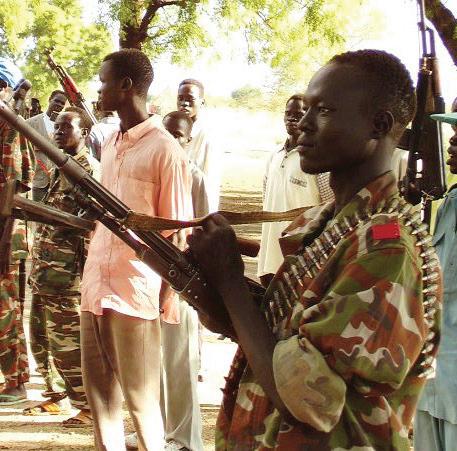





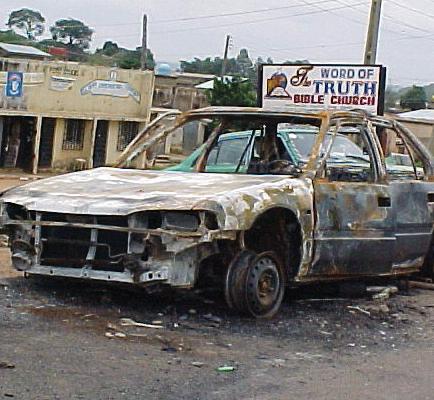



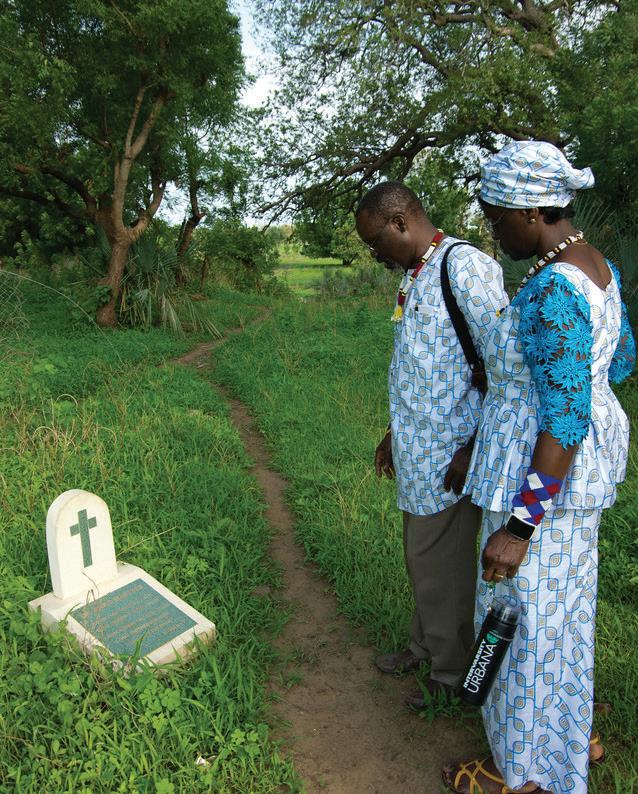




Encouraging the Church in world mission
CaringDeliveringtheGospelamidstwar formissionaries—whosejobisit? StudentsreachingstudentsinNorthAfrica Volume 2, Issue 3 WWW.AFRIGO.ORG
RISK AND MISSION MISSION
04 EVALUATING RISK AND CARING FOR MISSIONARIES
A look at the different types of risk, God’s faithfulness and why it’s crucial that missionaries are equipped and supported.
06 DELIVERING THE GOSPEL WHEN WAR IS RAGING
Anatole Banga’s ministry in war-torn Central African Republic.
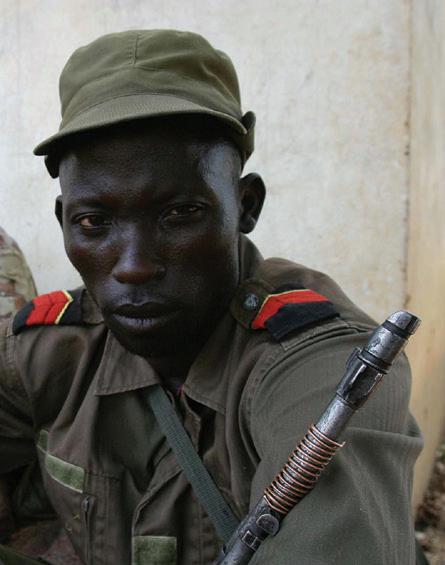
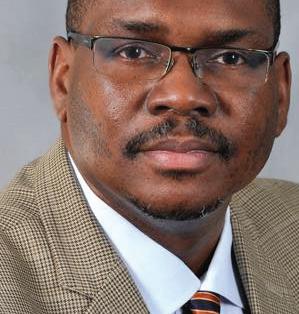
08 PERSPECTIVE
Chinedu Oranye believes we have a mandate to love and follow Jesus whatever the cost.
09 DIFFICULT DOES NOT MEAN IMPOSSIBLE!
A pastor urges university students from the South to maximise their opportunities to share Christ in North Africa.
10 CALLED
Gusty and Elina Makhutcha will serve among Mozambique’s Yao people.
11 GO! News of Africa’s Mobilising Church
12 People Groups: The Yao
© 2017 AFRIGO
AFRIGO is a publication aimed at raising awareness, mobilising, training and inspiring churches and individuals in Africa towards global mission.
Editor: Suzanne Green Design: Pilgrim Communications
Cover: Main photo by Joni Byker
The views expressed in the various features in this magazine are not necessarily those of the publisher.
Stock photos are occasionally used. Pseudonyms are used when there are security concerns.

www.afrigo.org
CONTENTS
04 06 03
EDITORIAL
08
SERVING… EVEN WHEN SAFETY ISN’T GUARANTEED
When our Lord Jesus commanded, “Go and make disciples,” He made no qualifications for easy circumstances or conditions. When He said, “I have come to seek and to save that which was lost,” He did not limit this to the lost who live in easy-to-reach places. Rather, his audacious mission is carried out every day in the most challenging places on earth – not by angelic hosts, but by feeble sheep, tottering out among wolves.
Persecution, disease, suffering, violence and death have characterised the fulfilling of the Great Commission from its beginning until today. Abduction of missionaries in Niger and Burkina, violent takeover of mission property in Sudan, constant threat to the lives and properties of workers in Pakistan … these are daily realities for many in mission work today, as they are the realities for local churches in which these workers live. However, this is not new to the
Church or to mission. Think of Peter, James and John in the Book of Acts, or Stephen, or Paul and Silas. These people carried out their calling in the context of persecution, risk and violence.
returned to the same people and in the same service of the same Saviour. Their calling transcends the risks and dangers around them.
These dear ones know that risk, danger and suffering are all part of our call to God’s mission. But in safety or peril, in ease or in discomfort, God promises to be with us.
On Christmas Day, 25 December 2016, violence broke out around the SIM station in Doro, South Sudan. Adults and children hunkered down under their beds, as bullets flew around them. After a couple of days, they were evacuated. But before long some of them were back again. Though their houses were looted and destroyed, they
In this issue of AfriGO we look at serving God in a dangerous world. You will find helpful training material about risk and caring for missionaries exposed to risk (pp 4-5). Those who are sent are part of a team, and churches and mission agencies have a responsibility to their very best to look after and safeguard missionaries. Perspective (p 8) invites us to ask a different kind of question about risk and other articles also shed light on this subject. And in our new regular feature, Called (p 10), you will now meet a missionary in every issue.
Rev. Dr. Joshua Bogunjoko SIM International Director
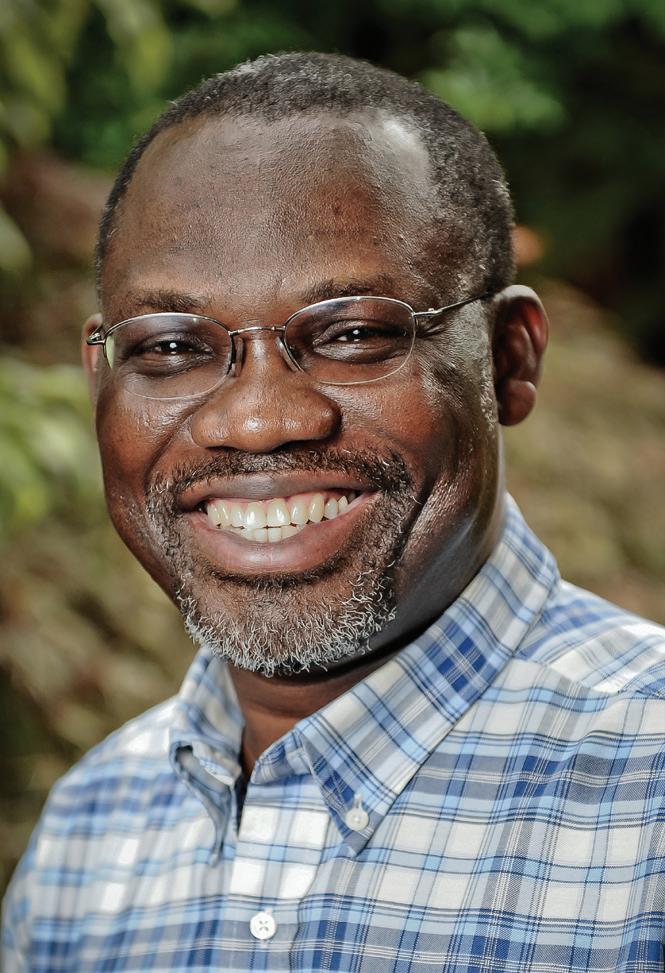
Volume 2, Issue 3 Editorial 03 www.afrigo.org
Their calling transcends the risks and dangers around them.
EVALUATING RISK AND CARING FOR MISSIONARIES
Risk is part of life, whether we stay home or become a missionary. And yet the parts of the world where Christ remains unknown are mostly the more dangerous ones. And Jesus told us that trouble would be a part of life. While we are not told to seek trials, the Bible teaches us how to respond to them when they come. Well responded to, trials strengthen our faith, deepen our knowledge of God, prepare us for empathetic ministry and, as God weaves our trials into his strategy, advance his missionary cause.
Early missionaries counted the cost before they set out. In fact, they took their coffins with them! Falling prey to diseases – for which there were no vaccinations – or to attacks by hostile inhabitants, they unintentionally became the first short-term missionaries. Lives sacrificed through taking the gospel to inhospitable places fell as precious seeds that germinated, grew and produced harvests of souls.
Our world is just as dangerous, in different ways, as that of the early missionaries. But we now understand the necessity and responsibility of caring for missionaries, God’s most valuable resource. The Lord is raising up a new generation of workers, from Africa and other parts of the world, who have known great suffering. Through it they have learned lessons that will help them thrive and bear fruit in difficult mission fields. But before setting out, every prospective mission worker, with help from his church and mission agency, should:
Known or calculated risk
This type of risk includes doctors and nurses who choose to stay and care for patients infected with the Ebola virus. It also includes missionaries who remain in areas of political upheaval, where spiritual attack is strong, or where there is no nearby medical help. In prayer and in discussion with mission and church leaders, a worker makes a calculated decision to take these risks for the sake of those dying without the gospel. However, responsible action in the face of a known risk could mean deciding not to send a new, unexperienced medical worker into a deadly pandemic.
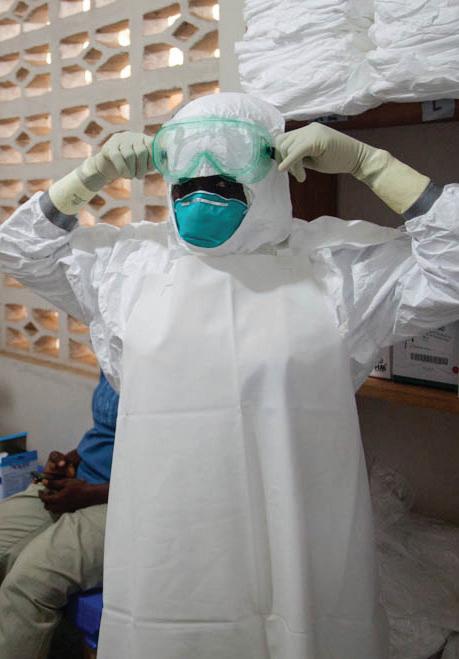
Unexpected or accidental risk
lives, we can claim the promise that all will work together for good, even traumatic experiences (Romans 8.28).
Some are tempted to leave the field when catastrophe strikes, especially in their first term. But with adequate care, their service does not have to be cut short. Remember that significant ministry is preceded by significant refining.
Honourable risk
Sometimes, even when a threat has been recognised, a worker is willing to sacrifice her life for Christ and his greater cause.
1) evaluate the risks; and
2) ensure he is adequately equipped and supported.
Road accidents, terrorist attacks, robbery, kidnappings and sudden illness cannot be predicted. These things occur even if we stay in our own town. We will need to draw upon his strength, share the burden with others, and willingly allow Him to fulfil his purposes through it. If we are following his calling for our
As she provided medical help in a clinic in Lebanon, a Christ-like, faithful and fruitful young missionary wife was shot dead. At her memorial service, filmed by news agencies from around the world, her husband powerfully preached the
04 www.afrigo.org Risk and Member Care Volume 2, Issue 3
Sometimes, even when a threat has been recognised, a worker is willing to sacrifice her life for Christ and his greater cause.
gospel to an audience in Lebanon and around the Middle East, declaring that he forgave his wife’s murderer because Jesus had forgiven him. Following his message, all of her missionary colleagues rose to their feet and rededicated themselves to their missionary task, asking Jesus to make them even bolder to take his message to those who had not yet heard it, no matter what the cost, because only this message could bring hope to a lost world.
Reckless risk
Some risk is reckless. Students who tried to cross an international African
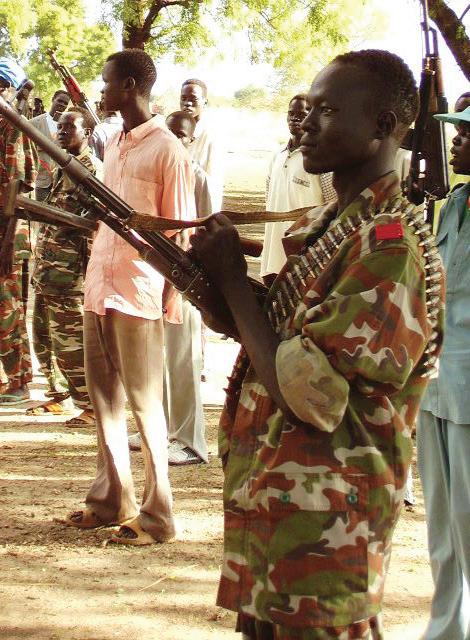
border without the necessary documents were refused entry. They claimed that they were being persecuted for their faith, when actually they were being punished for disregarding the law. Another example is a medical missionary who risks becoming HIV positive by failing to take the necessary medicine after a needle-stick injury. A missionary who misses several consecutive nights of sleep can expect serious health problems. And one who neglects his spiritual life will not withstand temptation. When we take reckless risks, we cannot claim that we are being persecuted for Christ’s sake.
Who should care for a missionary?
The worker is responsible to maintain good physical, mental and spiritual health in order to deal with demanding situations.
The sending church should pray faithfully, send regular financial support, encourage their missionaries often, and care for families. In this way they can thrive in their place of ministry and at home. A pastor’s visit can mean welcome counsel for long-distance workers.
The mission agency should take good care of missionaries. Those being sent should evaluate different sending bodies and choose one that will do everything possible to look after and protect them/their family.
Co-workers and local believers should offer practical care. This demonstrates Christ’s compassion to unbelievers. Carry one another’s burdens!
No matter how well prepared a worker is, he will come under attack. But God is in control.
Whether He rescues the missionary, allows trauma and suffering to continue, or allows him to lay down his life, God will bring good out of what his enemies intended for evil.
Remember that God is leading, and He will provide people to come alongside at difficult times.
Good pastoral care helps a worker to come through trials stronger, more mature and experienced. A team working together to ensure the wellbeing of the missionary allows God’s Kingdom to advance.
05 www.afrigo.org Volume 2, Issue 3 Risk and Member Care
CENTRAL AFRICAN REPUBLIC: DELIVERING THE GOSPEL WHEN WAR IS RAGING
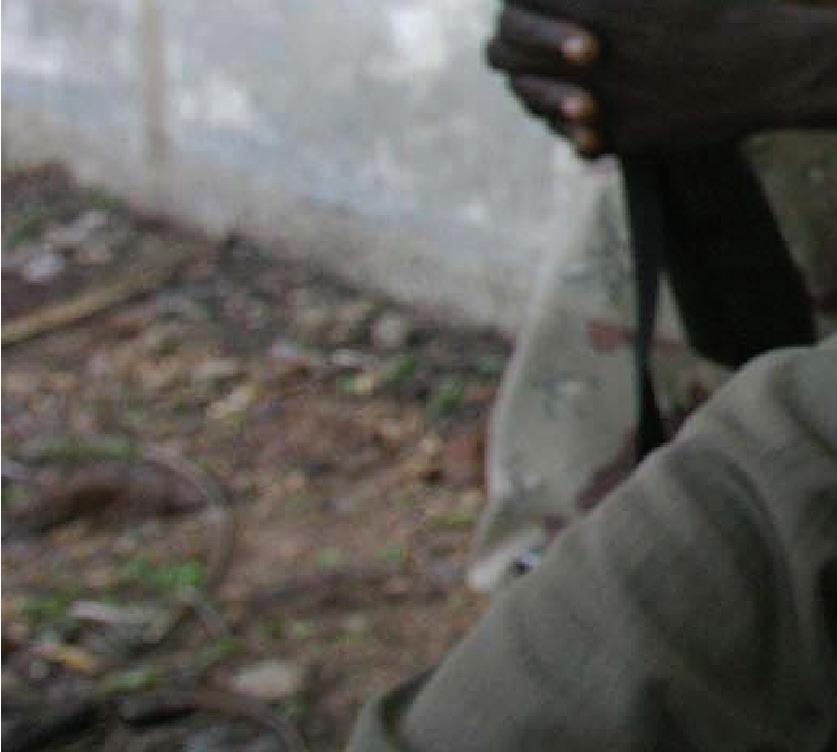
Anatole Banga knows what it means to take a risk for the sake of the gospel. Due to war and rebel activity since 2012, many pastors have been killed and churches burned down in the Central African Republic (CAR). Ministers of the gospel such as Anatole and his family served in a context that was far from safe. “The situation in the country meant Muslim communities opposed Christian communities, even though the root was political,” says Anatole. “But to my surprise, many are still risking their lives to share the gospel, and many are coming to faith. All praise goes to the Lord!”
Anatole became a Christian as a student in China in 1986. “I was doing agricultural engineering, when I met the Lord,” says Anatole. “When I got saved, the Lord gave me a burden for the Chinese people. For four years I started doing evangelism and helping underground churches.
“When I received my call to enter the ministry, I assumed I would get training and then go back to China as a missionary. But on my way, the Lord changed my direction. From West Africa I went to Europe. I thought I was going to be a missionary in Switzerland, but the Lord said, ‘No, go back to Africa’.”
So Anatole returned to CAR. There he launched the church-planting mission Fondation Jerusalem. Later, in 1996, Anatole started a second missions movement, in which he is still involved. Nations En Marche places a specific focus on unreached people groups.
“I gave up the leadership to the churches,” he says, “and just concentrated on outreach. The first group my team and I went to was the Pygmies, an animistic people.”
In order to reach the Pygmies, Anatole had to find them. They live deep in the jungle, having retreated several times due to mistreatment by the Bantu tribe and abuse during the ongoing war. At first Anatole struck out on his own, without receiving any training in how to go about reaching this people group. “The Lord helped me,” he says. “I am thankful that I didn’t make many errors – as I learned later when I did receive some training and started researching.”
Many things have changed for the Pygmies since this time. The mission helped them to build houses and acquire skills so that they could make a living for their family. There is literacy training for adults, a rural school for the children and a health care centre.
“We established the first missionary station about 20 years ago,” says Anatole, “and then we just kept on moving into the forest to find the people and share the gospel with them. I am really glad. Because not only have Pygmies received the gospel, but some have been trained as missionaries. Today they are reaching out to their own people with the gospel.”
A special grace
Anatole also felt God’s call to reach out to CAR’s Muslims, who mostly live in Bangui, the capital city. Because he didn’t have any idea how to go about this, Anatole spent 40 days praying and
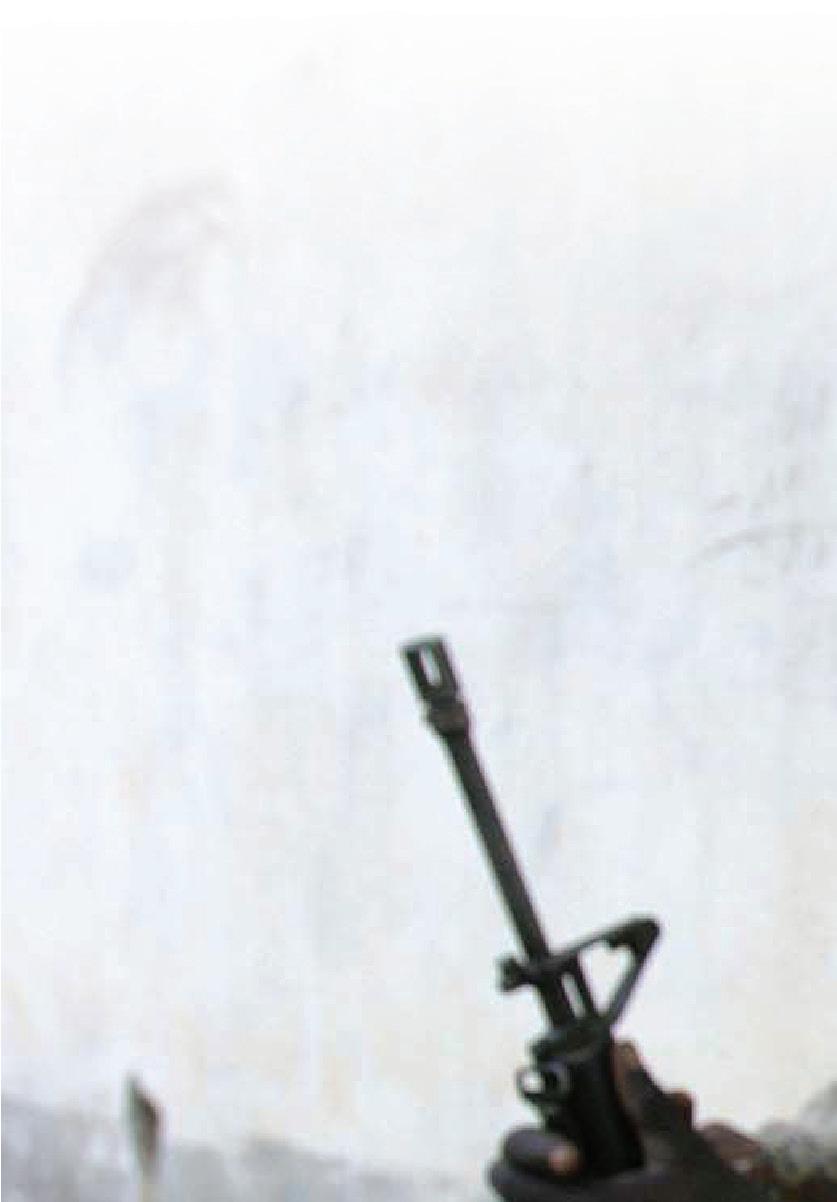
fasting, asking God to direct him. Muslim people respond just as anyone else to love, friendship and compassion. And, as he reached out to them, he saw some come to the Lord. In 2000 Anatole and others launched the Mission Polytechnic Training Center in Bangui.
War and conflict have characterised the CAR for some years. “During the crisis I travelled to meet and discuss reconciliation with different groups. In Yaloke we were almost killed by Muslim armed rebels. We have opened meetings in different places, calling on people to cease the fighting. In Bouchia we faced the same danger.
In Boda the Balaka group was after us. When bringing supplies to suffering believers in remote regions many times we almost lost our lives on the road. In Bangui I jeopardised my life when saving a rebel chief, as people were preparing to kill him.”
06 www.afrigo.org Feature Volume 2, Issue 3
As war raged, the Banga family hid Muslims in their home to protect them. Anatole’s wife nearly lost her life, and his children were traumatised through seeing violence.
In January 2014 he relocated them to Ougadougou, Burkina Faso, for their safety and restoration. The following year his wife suffered a stroke, and Anatole spent months in Burkina Faso with her and the children (aged 21, 17 and 3 ½). “The Lord intervened and she is much better now,” he says. “She has a special grace to touch Muslim hearts, and I am praying about starting a ministry to Muslims in Burkina Faso.”
Anatole is encouraged to see even new Christians in CAR standing up for their faith and taking risks to share the gospel. “Their courage, and their concern for Muslim people despite the danger, is proof of the love of the Lord Jesus in their hearts,” he says.

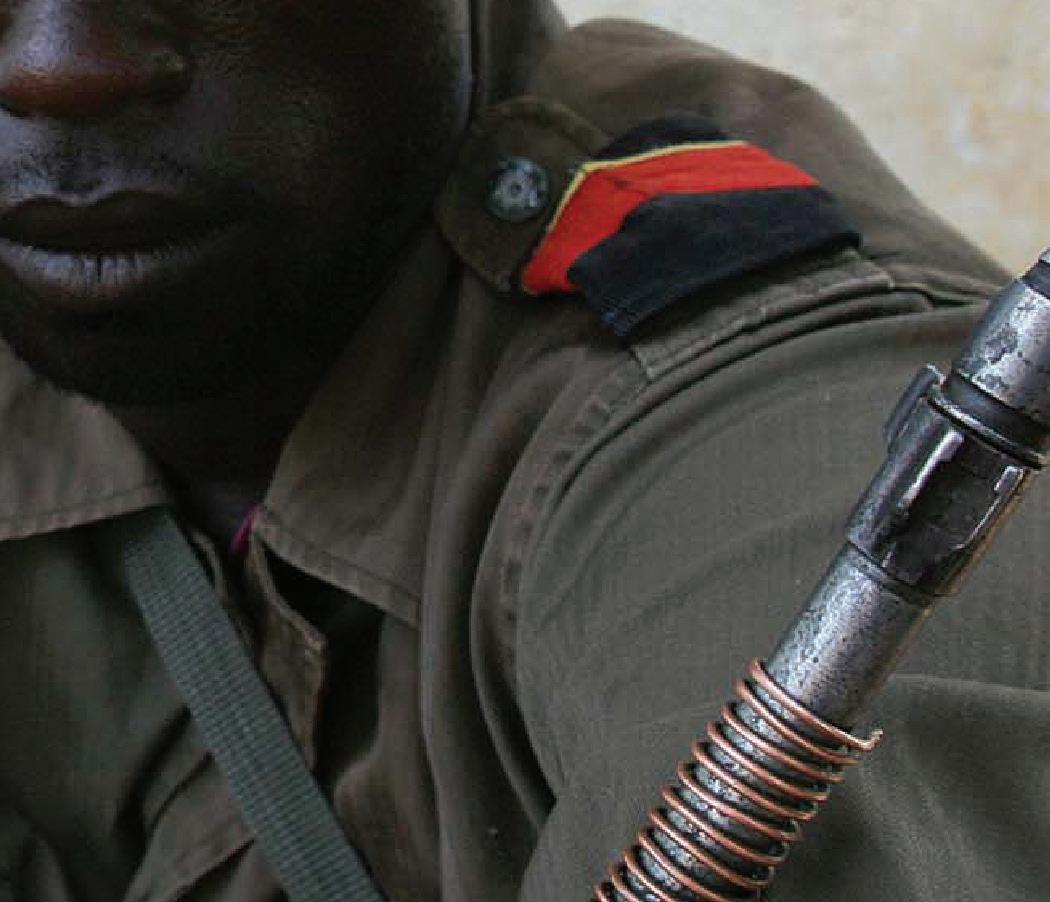
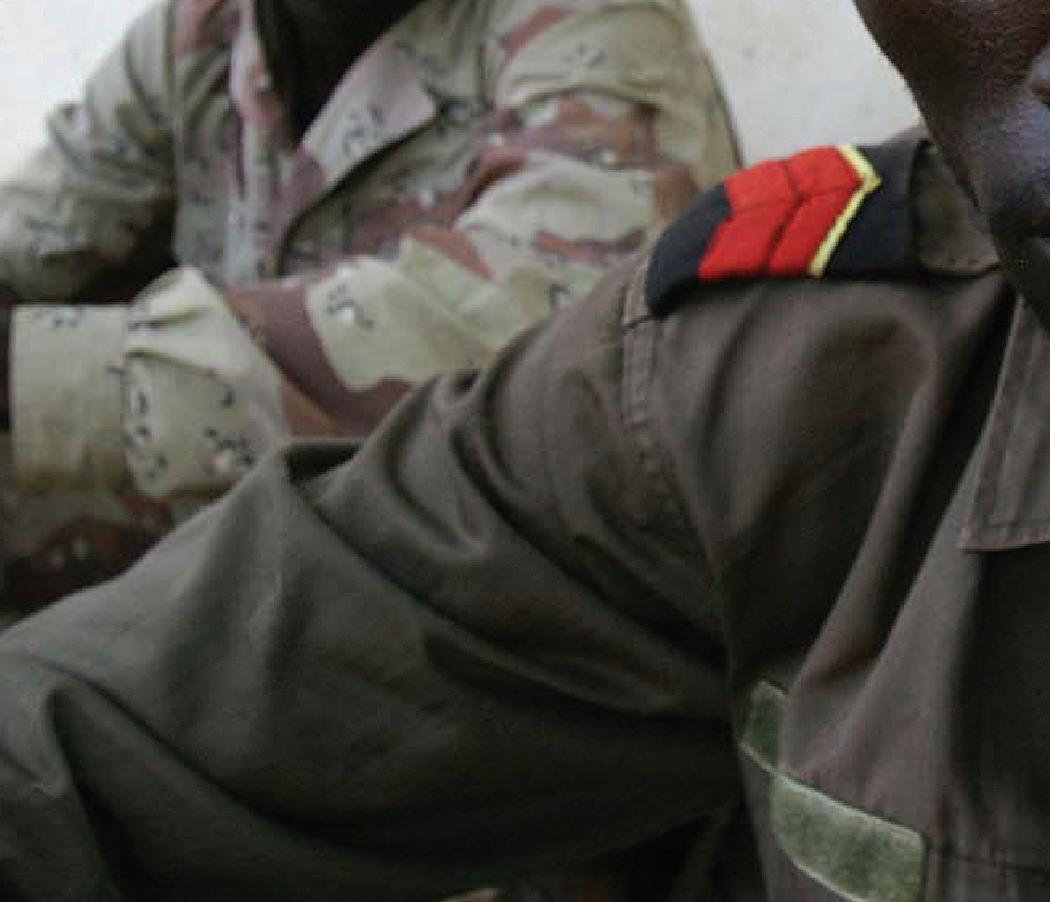
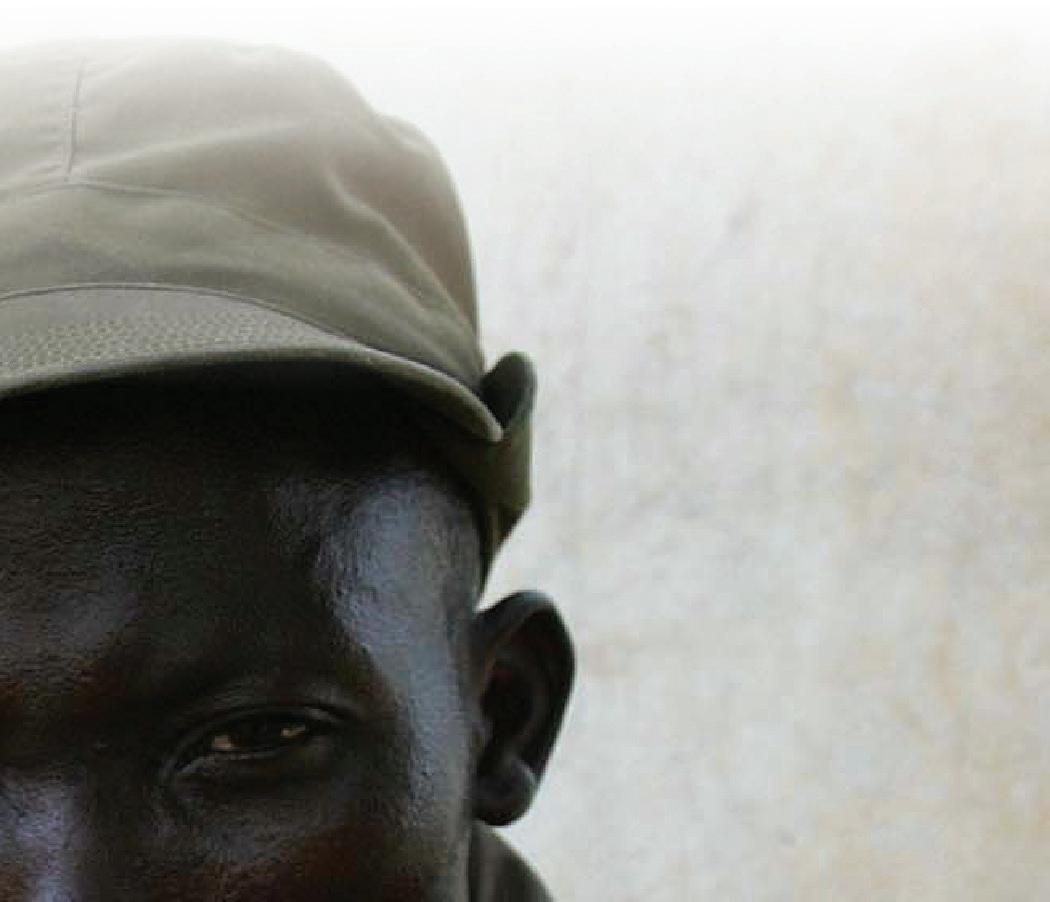
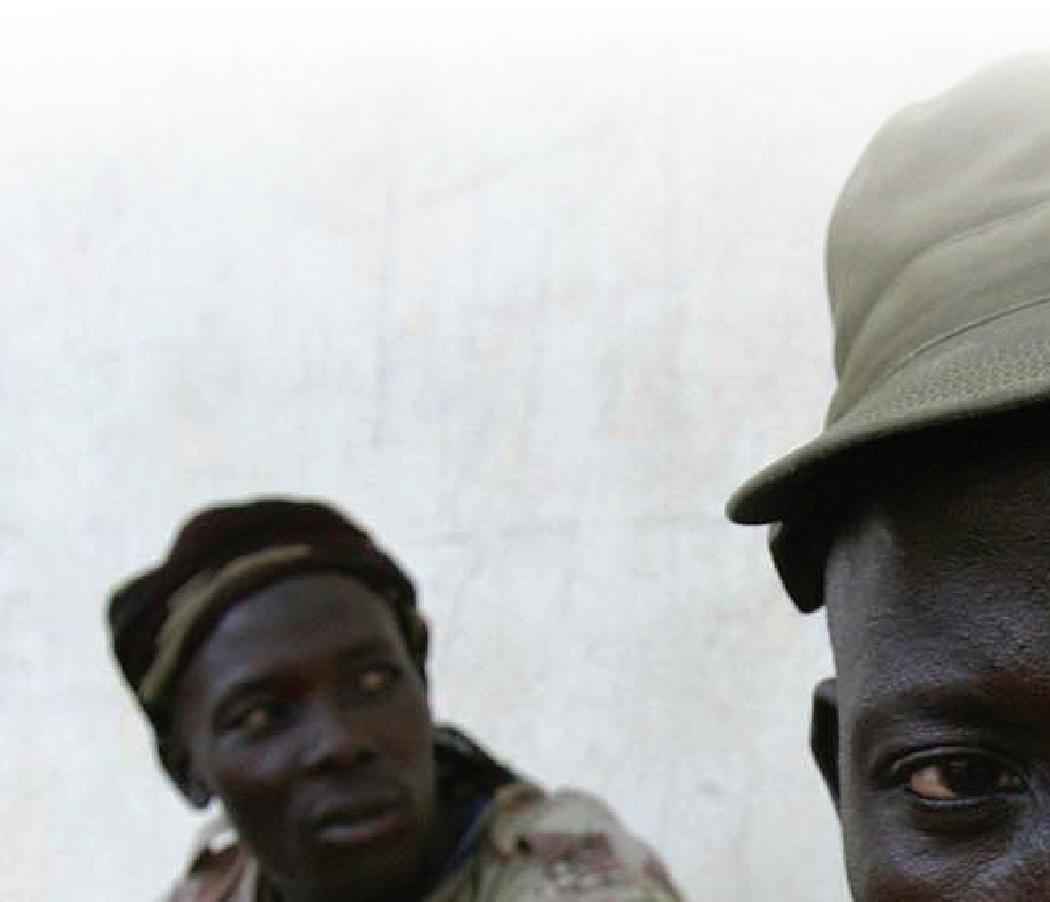
07 www.afrigo.org Volume 2, Issue 3 Feature
Photo: HDPTCAR
Anatole encourages Pygmy congregation.
IS IT REALLY WORTH THE RISK? CHINEDU ORANYE
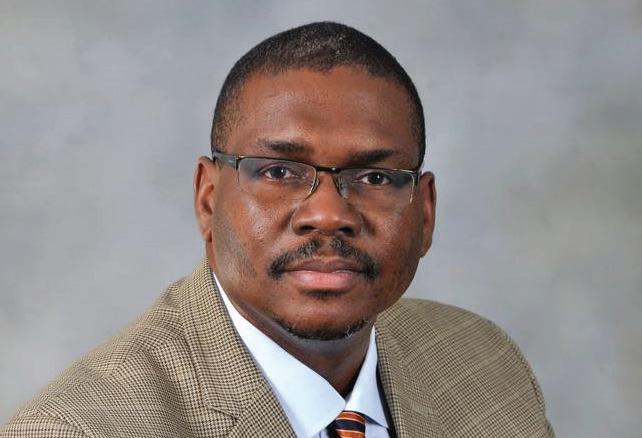
Is missions worth the risk? It’s one of the biggest questions being asked today. Maybe we should ask: Are the lost worth the risk? Is presenting Jesus to forgotten peoples worth the risk? Or, to put it more sharply: Is obeying Jesus worth the risk?
I write as a practitioner, having lived and worked in difficult settings for most of my 24 years of my ministry, and having been locked up twice for my faith. Is it really worth it? Yes!
The world will not yield to Jesus without a fight. We cannot discuss global change and spiritual victories, without a corresponding discussion of the costs. On the cross, Jesus won the victory for the whole world, and we have been called to enforce this victory, in love. Of course, this will result in repercussions from Satan’s camp, so we must be ready.
Be ready!
The prophet Agabus bound his own hands and feet with Paul’s belt and prophesied to Paul saying, “Thus says the Holy Spirit, ‘So shall the Jews at Jerusalem bind the man who owns this belt, and deliver him into the hands of the Gentiles,’” (Acts 21:11). Paul’s response speaks to the question of taking risks for Jesus. “What do you mean by weeping and breaking my heart? For I am ready not only to be bound, but also to die at Jerusalem for the name of the Lord Jesus” (verse 13).
Missions is all about taking risks. Missions cannot be missions if we remove the risk factor. Missions is working with others to undermine the systems of Satan, and to enthrone Jesus. Even thinking this will bring a backlash from the enemy.
Paul was prepared for it. The Apostles of the early Church were ready for it. The first century Church was ready for
it. But unfortunately, our generation is doing everything to avoid it. Suffering for Jesus and taking risks for missions is integral to our belief system. We should be promoting it, rather than denying its value.
death he would glorify God” There is a death that glorifies God, and that is dying where and how and when He chooses. The mature disciple does not determine how he lives or how he dies. He trusts his life into the hands of his loving God. He wants to please Jesus, even at the expense of suffering and dying.
The world respects extreme devotion and passion, and unless we grow in our devotion to Christ and his cause, even to the point of being willing to give up everything for Him, people will not take the gospel seriously. The battle for the nations demands an unapologetic and unequivocal commitment to Jesus. In real terms, this means a willingness to make any sacrifice for the sake of making Him known.
Love for Jesus must go beyond ephemeral feelings. It must be a spiritual act of the will, a conscious and deliberate decision to follow Him, even to the ends of the earth. In Acts 21:18-19, Jesus said to Peter, “‘When you were younger you girded yourself and walked where you wished; but when you are old, you will stretch out your hands, and another will gird you and carry you where you do not wish.’ This He spoke, signifying by what
I am not advocating reckless and foolish behaviour that will attract unwarranted persecution and suffering – or proposing that every missionary must suffer physical pain or die a gruesome death for the sake of missions. However, we have a mandate to love and follow Jesus at any cost. We must call the Church and the Missions Movement back to the place of extreme devotion to Christ. Following Jesus means total allegiance, born out of radical discipleship. Where pain and pressure become necessary in our service, we must not shy away from them, but trust God to go through the fires of love.
Anything less than such a lifestyle of communion with Christ is a strange and unacceptable pattern for the New Testament believer.
Dr. Chinedu Conrad Oranye is a passionate Jesus-lover with one mandate: to raise a radically passionate generation of Christians who are extreme in their love for Christ and obedience to his Word. He serves as an International Director with Calvary Ministries CAPRO (Nigeria) and is part of the international faculty of the Haggai Leadership Institute Hawaii (USA). www.capromissions.org; www.restlesspilgrim.org
08 www.afrigo.org Perspective Volume 2, Issue 3
Following Jesus means total allegiance, born out of radical discipleship.
GO NORTH! DIFFICULT DOES NOT MEAN IMPOSSIBLE
We may face danger when we choose to serve God. But someone will have to take a risk in order to bring the gospel to North Africa (NA). Salvation is free, and yet Jesus paid a high price to redeem us. Are we going to remain spectators? The time has come for the Sub-Saharan African (SSA) Church to send workers to minister here.
Many are praying that they will see the Great Commission fulfilled in NA, especially through the South to North Africa Movement. I strongly believe that God will send those who are willing to obey from the South, to share the good news with one of the most desperate parts of the continent.
As Paul says in Romans 10:14-15, how can:
• they call on the one in whom they have not believed?
• they believe in the one of whom they have not heard?
• they hear without someone preaching to them?
• anyone preach unless they are sent?
Every day SSA students spend time with NA students. They have fun together and discuss a variety of topics, including religion. Every year a number of SSA students repent and accept the Lord Jesus, after hearing the testimonies of other students. So it’s possible to see more and more of this happening among students from a Muslim background. Unfortunately, some students who declare themselves as Christians do not live out an authentic Christian testimony while they are here! Instead, they wait until they leave the country before sharing what Jesus did in their lives.
Most SSA students realise after about three years that they can bless
others through their testimony. And that is exactly when they are preparing to return to their home countries. But it’s possible to train and prepare SSA Christian students to serve God! Currently, very few workers serve among our university students. So it’s not surprising that we see very few conversions. SSA students can change this.
Let’s highlight the fact that SSA students have easy access to NA. The low cost for university studies is attracting more and more students, including those in private schools and vocational training. Obtaining a visa can be difficult for many, but not for SSA students. It’s an open door for university students who have a valid reason for being here and can “fly under the radar”. In addition, SSA students connect well with other students, regardless of the culture.
Of course, there are obstacles too, both culturally (racism) and theologically (comparing Christianity to Islam). And it will always be a challenge to learn Arabic. Finances present a great challenge.
Focusing on youth means preparing a generation of future leaders for churches, the private sector, and some public or governmental institutions. By investing our time, energy and resources, we anticipate a positive impact on the local churches and the nations in NA. And of course, at the end of the journey, SSA students are likely to return to their home countries with renewed concern for the lost.
It’s time for a movement from South to North! Let’s work hand in hand, trusting that God will bless our efforts. We now see that it’s possible for SSA Christian students to go to NA, share the gospel and lead other students to Jesus. But the most important thing is not what we know, but what we do with what we know! Here’s how you can join in this faith adventure:
• Pray for the Go North vision.
• Pray that God will provide Christians who can train and mentor SSA students in North Africa in sharing their faith.
• Get involved in mobilising SSA churches to pray, send and give or support the Church in NA.
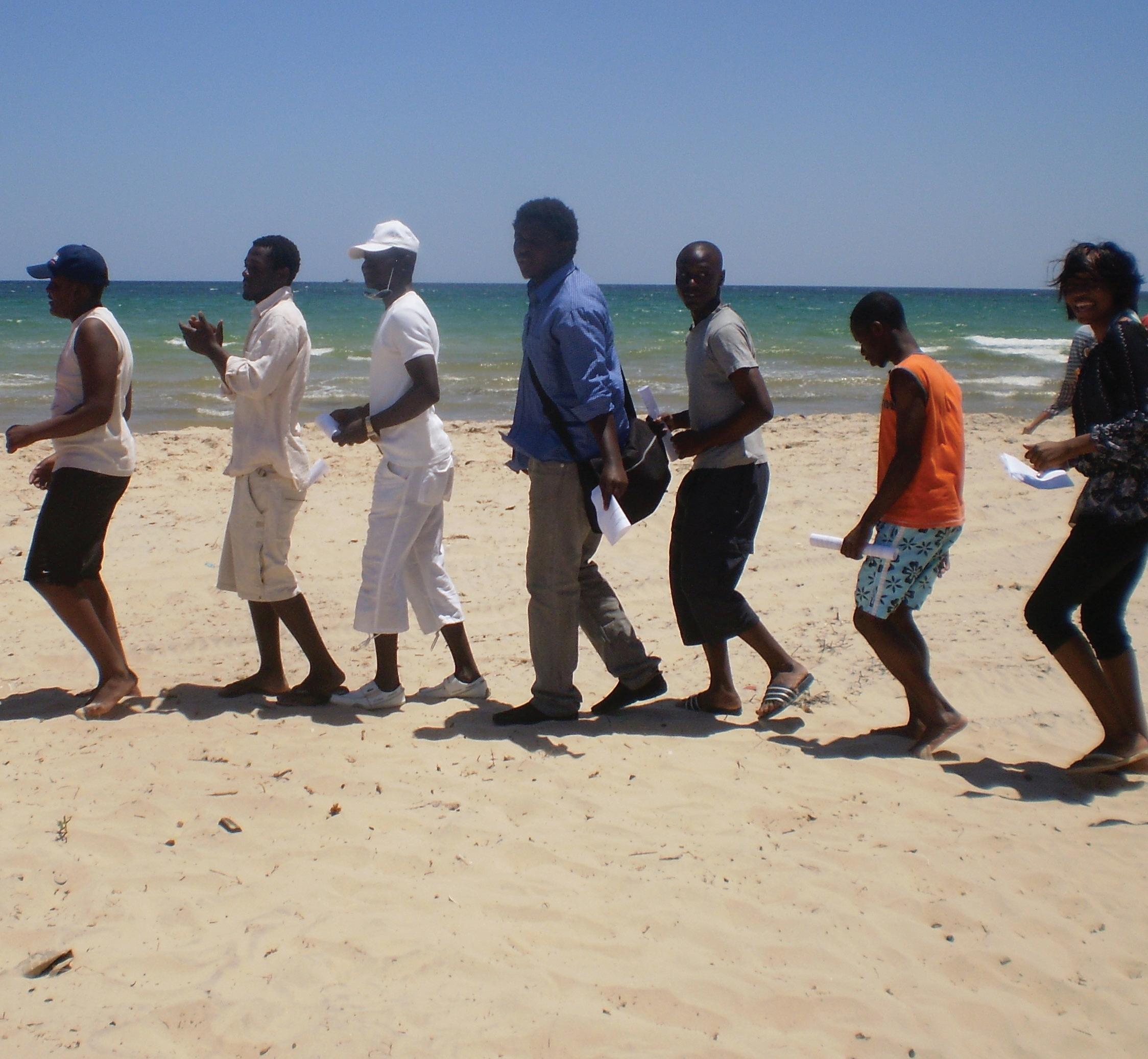
• Join S2NAP (South to North Africa Partnership) in leading, training and equipping SSA students in NA.
• Encourage and support those who go, if you cannot go.
• Fund or help raise funds for SSA Christian students’ scholarships in your partnership with S2NAP. Remember that difficult does not mean impossible! Everything is possible for the one who believes. Will you remain a spectator?
www.afrigo.org 09 Volume 2, Issue 3 Feature
This article was written by a pastor from Sub-Saharan Africa, who has lived in North Africa for 16 years. Please email afrigo_english@sim.org with any questions or feedback about this issue.
Later this year my wife, Elina, and I will go as missionaries to Mozambique to work with the Yao people [see back cover]. Our journey started, prayerfully, nine years ago, but we have had to go through a number of difficulties and setbacks. Despite this, we have been encouraged through our personal prayer life and the prayers of others to keep moving forward.
In 2008 I was studying at the Evangelical Bible College of Malawi (EBCoM) when I felt called by God to go into mission. This was strengthened through reading books I obtained at a Pastors’ Book Set (PBS) conference that same year.
On graduating from EBCoM I was told by my church, the Africa Evangelical Church (AEC), that there was a greater need for pastors within Malawi than on the mission field. So I was sent to work in Salima, among the Chewa people.
Four years later at another PBS – this one dedicated to mission – I again felt the call to go. Again, we prayed, but still I was not able to move forward with what I was sure was God’s call.
More time passed and in 2015 I approached the AEC about going to Mozambique, but this time I was told there were no funds available to allow this to happen. Then I met Watson Rajaratnam, who serves with SIM Malawi. Watson started to talk and pray with Elina and me, showing us and our church ways in which I could get the resources we needed to go to the mission field.
He introduced us to the Malawi Mission Prayer Fellowship, a small group of

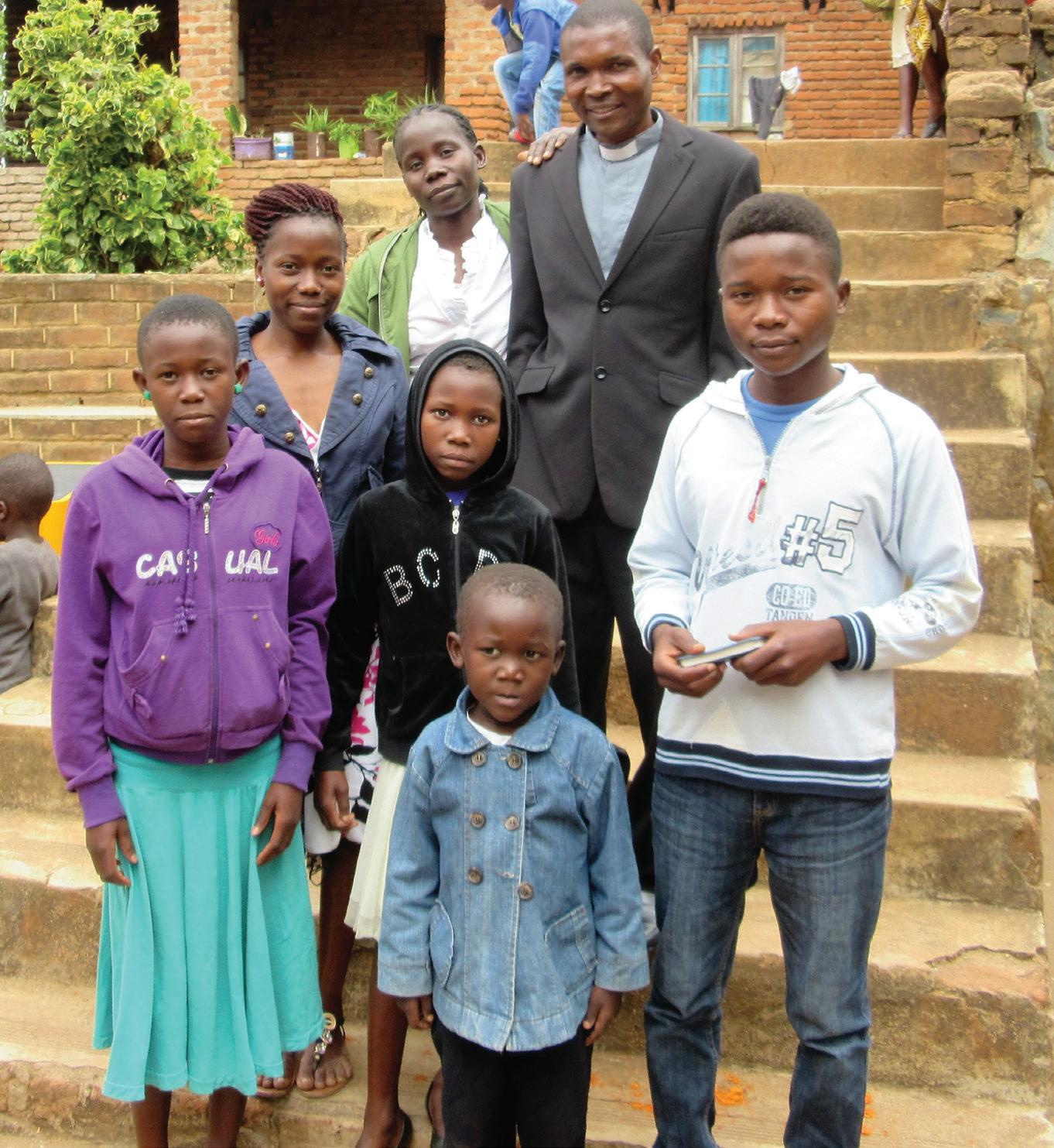






ABUSA GUSTY AND ELINA MAKHUTCHA
people who have mission in their hearts. They prayed for us when we visited the area of Mozambique where we hope to serve, and continue to pray for us as we prepare to go. Having this group behind us has been very important and will continue to be so in the future. Group prayer is very powerful and we have been blessed to be part of this.
Our journey in prayer has been a long one but it will not finish now! Each day
Elina and I, with our children who will go with us to Mozambique, pray for our preparations and for other missions and missionaries. We are dependent on God, through prayer, for our lives here in Malawi, as we will continue to be in Mozambique.
Mission is God’s work, and we have found over the years that it is vital, as we go forward, that we depend on Him by prayer.
www.afrigo.org 10 Called Volume 2, Issue 3
Our journey in prayer has been a long one but it will not finish now!
Funding missionaries Malawi style
In Malawi the Church is looking for creative ways to meet the financial needs of missionaries.
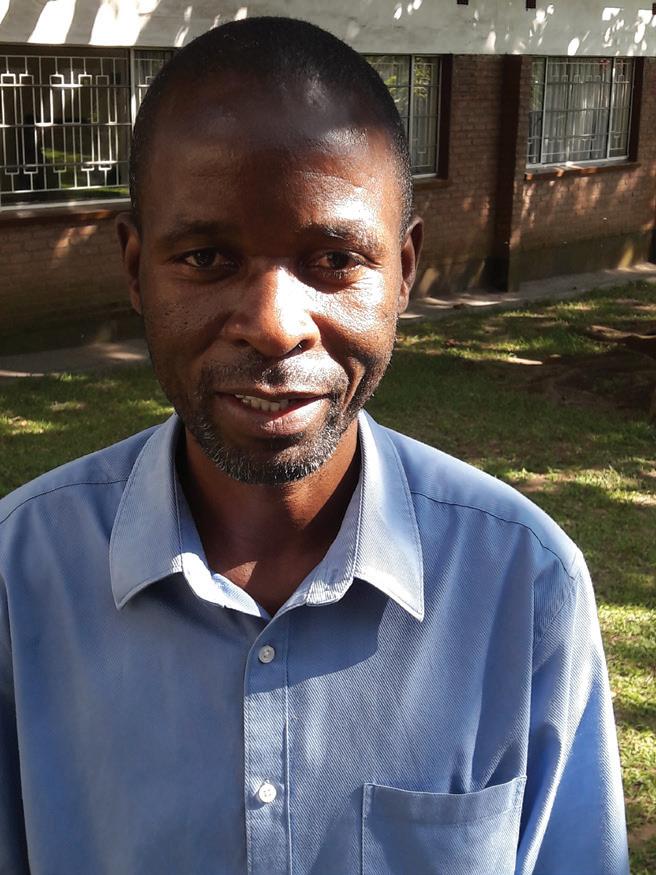
At least this is what the Africa Evangelical Church (AEC) hopes to do as it raises funds to send its first missionary family, the Makhutchas, to serve among the Yao of Mozambique (see page 10 and back cover). The AEC General Secretary, Rev. Allan Alfazema, is preparing to launch a funding drive to raise the 150,000 Malawian Kwacha (GB £160) a month that will be needed for the family’s living expenses.
Pledge cards are being printed in English and Chichewa, and Rev. Alfazema will visit different parts of Malawi to identify people who will take responsibility for these cards. They will work with their churches to identify those who may be able to support the work financially. Once the pledges have been made, the convenor will follow up to bring in the money. “In addition to monetary pledges and gifts, we are looking for support ‘in kind’,” Rev. Alfazema explains. “For people who cannot commit to giving cash, we are looking for food donations.”
The AEC has just over 100 churches across Malawi. So there is potential for many churches and individuals to give a little to help raise a lot. “I want each and every Area Council to see what they can do in terms of fundraising,” says Rev. Alfazema. “As a church we are very excited about sending this family, our
NEWS OF AFRICA’S MOBILISING CHURCH GO!
first missionaries, to our neighbours in Mozambique. This excitement is tempered with the realisation that we have to raise a substantial amount of money, not just for a month or two, but for many years. We are determined to do this, to fund the work and to see it bear fruit for the Lord.”
Email allanalfazema@gmail.com if you would like to make a gift or offer encouragement!
CAPRO celebrates 42nd year
Calvary Ministries (CAPRO) turned 42 in April 2017. Currently in 36 countries, with more than 700 missionaries, what started in Nigeria as an indigenous missions expression has become an international, interdenominational mission with workers from 26 countries spread over 37 denominations.
In August CAPRO will hold a strategic summit in Lagos to envision future ministry. All of the mission’s national leaders and major stakeholders will join in a week of seeking God, developing capacity and dreaming for the future. In the same month CAPRO will also host a missions training event. CAPRO is currently looking at partnering with churches and ecumenical bodies in Lagos who could act as host.
Next Issue
We look at Youth and Mission. Our features will consider youth who are doing their part to fulfill the Great Commission, as well as those who are reaching out to young people with the gospel of Christ. What are the priorities when it comes to youth ministry? Why is it so important to introduce people to Jesus when they are young?
Côte d’Ivoire hosts francophone missions event
The Francophone Africa Consultation (CRAF) was held 18-21 April, 2017 in Grand Bassam, Côte d’Ivoire. Organised by Africans for African churches, CRAF welcomed more than 200 people with a desire to learn from and encourage one another in ministry.
CRAF provided a platform to see and hear what God is doing through African mission agencies. The event’s focus was “bringing back the evangelical kingdom, biblical formation and integral mission to the local church”. Participants chose from a variety of training sessions, including “Business as Mission” and “Go North”. A range of mission topics and opportunities were covered, including ministry to children and women, discipleship, ministry to Muslims, biblical hermeneutics and teaching.
The twin magazines AfriGO and Allons-y !, which were launched in 2016, were presented. “It was good to be able to share with many the potential of these publications,” says Distribution Manager, Hauwa Shelwah. “They present Africans with the opportunity to be heard and seen in their different ministries, successes and challenges.
http://www.crafmissions.net/afrique-francophone
Let us hear from you
Do you have questions about this theme or other missions topics? What issues would you like AfriGO to cover? We welcome your input, so that we can make the magazine as relevant and comprehensive as possible. Please email info@afrigo.org with your questions and ideas.
11 www.afrigo.org Volume 2, Issue 3 News
Anatole encourages Pygmy congregation.
People Groups: THE YAO
The majority of the two million Yao people, who live in Mozambique, Malawi and Tanzania, practise a form of Islam that is intermingled with their traditional animistic beliefs. “Folk Islam” makes them slaves of fear, because they have experienced the power of demonic forces in their communities. Charms are often placed round children’s necks to protect them from evil spirits.
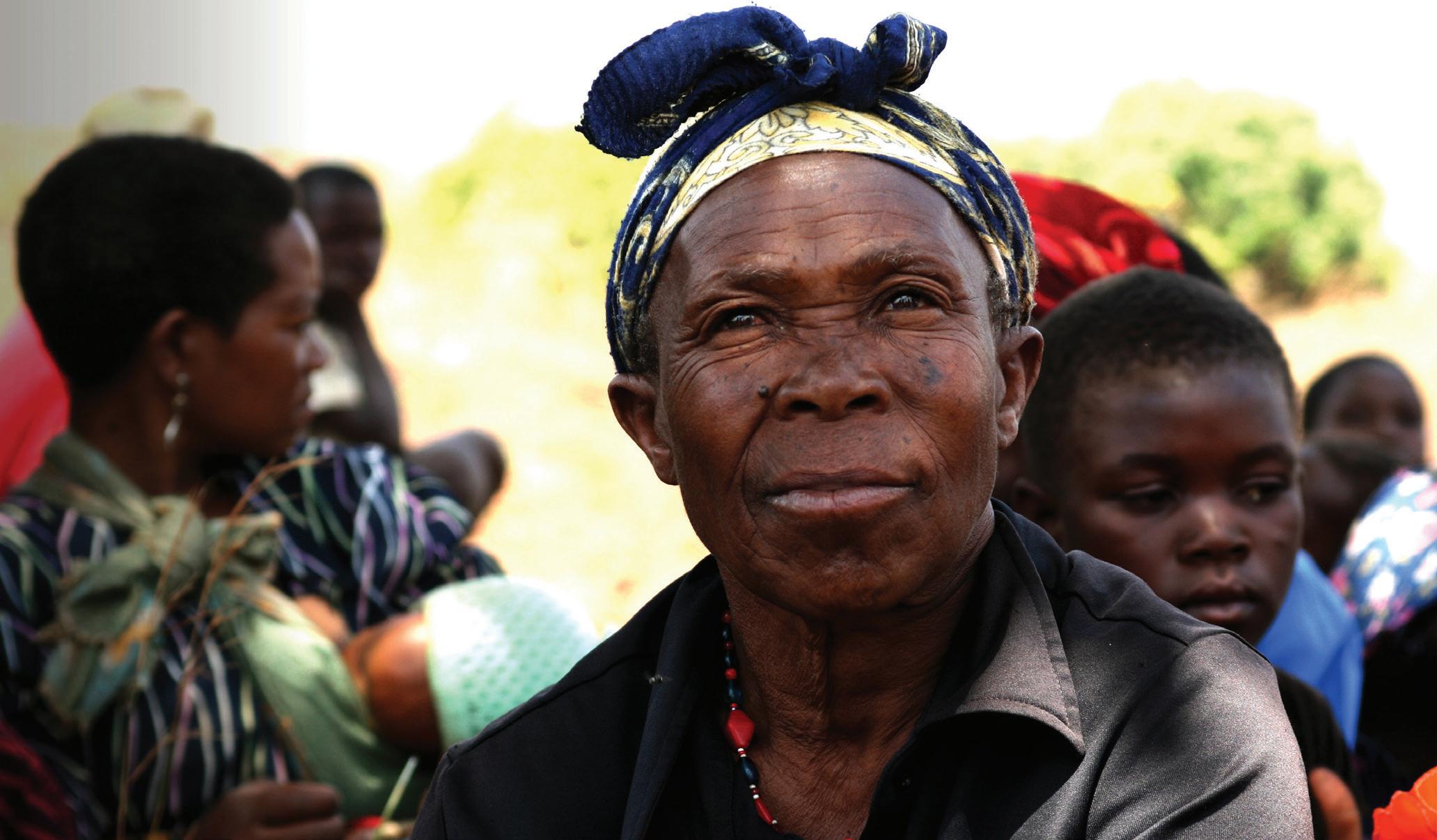
Illnesses are often thought to have been caused by curses or the breaking of social taboos, so government health centres are rarely consulted.
Yao history reveals that their ethno-geographic centre is a small village in the northwestern Mozambican province of
At a Glance
• The Yao are mostly subsistence farmers and maize is their main crop.
• At least 450,000 Yao live in Mozambique. They make up 40% of the population of Lichinga, the capital of Niassa province.
• Close ties with Arabs in the late 19th century led to the adoption of Arab religion and architecture. However, they retain their own national identity.
• The Yao in Malawi count among their famous progeny a former President of the Republic, Bakili Muluzi.
Niassa. When Arabs arrived on the east coast of Africa, they traded guns and clothing with the Yao in exchange for slaves and ivory. Because of this coastal trade, the Yao became one of the richest and most influential tribes in southern Africa.
After World War 1, the entire Yao nation turned to Islam. The great chief Mataka decided that becoming a Christian would have a negative economic impact on his people, while Islam offered them a social system that would assimilate their traditional culture.
Several agencies have shared the gospel with the Yao people and a small percentage of the population is Christian (less than two per cent). In 2014 the complete Bible in chi Yao, the language of the Yao people, was published.
Ask God To:
• Free the Yao from witchcraft, fear and envy.
• Send labourers who will share the gospel in the power of the Holy Spirit.
• Draw indigenous expressions of worship from new believers.
• Bring salvation to chiefs and village leaders who will influence others in the community to turn to Jesus.
SIM East Africa Tel: +251 911 206 530 east-africa.office@sim.org

SIM West Africa Tel: +233 30 222 5225 wamo.personnel@sim.org
SIM Southern Africa Tel: +27 21 7153200 za.enquiries@sim.org
AIM International amc.io@aimint.org aimint.org/africanmobilization/
AFRITWENDE
AFRIGO: info@afrigo.org ALLONS-Y ! : info@afrigo.org AFRÍDE: afride@afrigo.org
: afritwende@afrigo.org







































































































